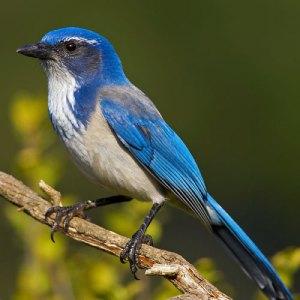by the Center for Biological Diversity
When western scrub jays spot the lifeless body of another on the ground, they cease their foraging and flight to alert fellow jays. And from great distances the others come, gathering around their dead and singing their cacophonous dirge — what ornithologists call “zeeps,” “scolds” and “zeep-scolds” — to encourage those even farther away to attend.
According to a recent study published in the journal Animal Behaviour, these funerary rites help jays share information about nearby danger. In the study, Western scrub jays reacted differently to a series of objects set out by observers from the University of California, Davis: They attempted to scare off a stuffed predator, scolded a stuffed jay, ignored painted scraps resembling a dead jay, but gathered to better understand the implications of a true death.
Of course, such practical yet metaphysical contemplation isn’t entirely shocking coming from such a smart bird. Recent research also suggests western scrub jays may be among the most intelligent animals, with a brain-to-body-mass ratio that rivals that of chimps and whales and an uncanny ability to plan for the future — long believed a uniquely human trait.
Read more in BBC Nature.

